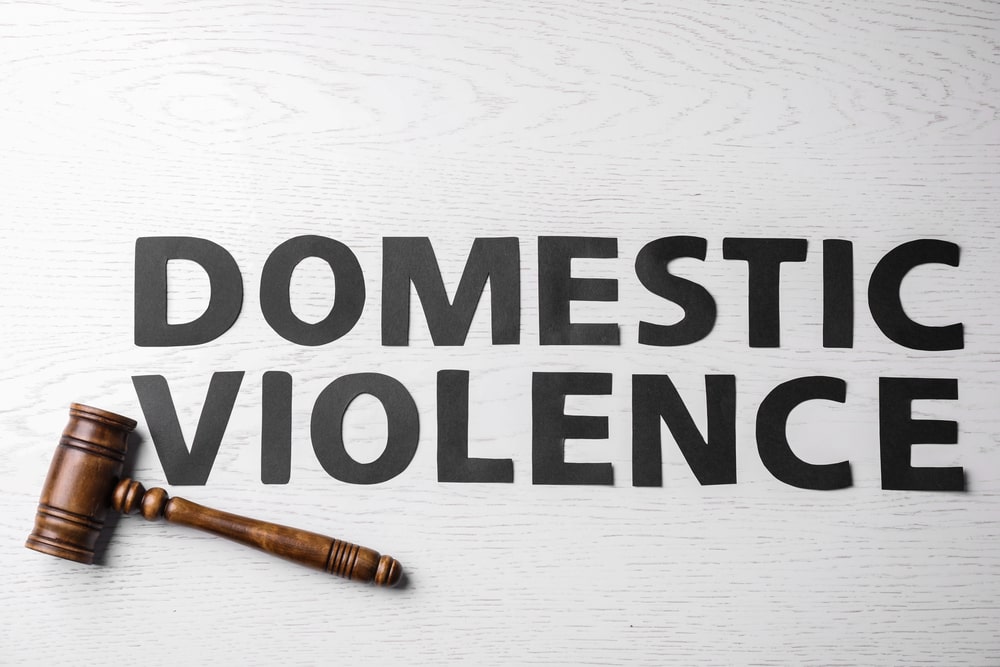
Domestic Violence Statute of Limitations in California
Like most criminal and civil matters, domestic violence has a statute of limitations under California law, imposing deadlines on anyone who wants to report a case of domestic violence and/or file a lawsuit.
These deadlines are in place because, generally speaking, the longer the period after a crime has been committed, the less reliable the evidence is.
It is, therefore, imperative that victims of domestic violence act promptly. By understanding more about the statute of limitations for domestic violence, more informed decisions can be made about how to handle cases.
What is the statute of limitations for domestic violence in California?
The statute of limitations for criminal cases in California is generally one year for misdemeanors and three years for felonies. More serious cases allow prosecutors additional time to press charges and no statute of limitations applies to the most serious crimes, such as rape and murder.
For domestic violence in California, the statute of limitations is five years from the date of the incident. This is considerably longer than for most other crimes and was recently (in 2020) extended. The extension allows for the length of time that it historically takes some victims to come forward and report the incident.
Domestic violence is often considered a “hidden crime” because it takes great courage for a victim to report a household member (often a member of the same family) to law enforcement.
The statute of limitations used to be one year for any misdemeanor domestic violence offense and three years for any felony domestic violence offense. With the recent extension, victims of domestic violence have five years to file a police report or for the abuser to be charged with a crime.
Under the same legislation that extended the statute of limitations, a new category of domestic violence was introduced in California called “coercive control”. This provides prosecutors with broader powers to charge instances of domestic violence that do not result in physical violence but involve mental or emotional abuse at the hands of another household member.
Why are domestic violence victims reluctant to come forward?
No one has the right to abuse another person, whether within the confines of a home or elsewhere. Victims have the right to seek justice but not all are keen to come forward and report what’s happened to them.
Sometimes, the reluctance of victims to come forward is out of fear of retaliation or because they feel intimidated. Some even fear for their life. At other times, the reluctance is out of a sense of shame, loyalty or even love for an abusive spouse, who may be the father of children in the household.
Sometimes, too, the victim is not even aware that he/she is being abused because it happens gradually over time, almost becoming the “norm” but escalating over time.
Domestic violence is a crime that can involve considerable emotional stress, upheaval, and mental anguish. In such situations, it’s very challenging to make clear-headed decisions. People don’t always see a way forward, even with advice from friends and family.
Consequently, it can be a long time before a victim steps forward to report the abuse—and many times, it’s not reported at all.
What should I do if the statute of limitations has expired for my case?
If the statute of limitations has already expired (it’s over five years), don’t automatically assume that the legal avenues to seek justice are closed.
You may still have some ways available to take the necessary action against the abuser. These include:
- File a police report: if five years have passed, you may not be able to file a criminal charge or sue the abuser but by filing e a police report, you create a record of the abuse, which will be taken into account if a future domestic charge is filed against the abuser.
- Consult with a prosecutor: even if the statute of limitations has expired, a seasoned prosecutor may know of ways by which charges can be filed if the case warrants it.
- Apply for a restraining order against the abuser: it’s important if you are still in danger to prevent any further harm by applying for a restraining order. This will require your abuser to remain a certain distance away from you for a defined period, which can be extended if necessary.
- Speak with an attorney: a family law attorney will not only outline your legal options and provide advice if necessary; he/she will also act as part of your “support team” who will listen to your story with compassion and help you make good decisions.
Can a domestic violence case be dismissed in California?
It is important to note that once a domestic violence report has been made to the police in California, the decision of whether to charge and prosecute the alleged abuser is taken out of the hands of the complainant
Even if the victim wants to withdraw the complaint, once the decision has been made to charge and prosecute, the district attorney has the sole authority to dismiss the domestic violence case at the court level.
If there is not enough evidence to achieve a conviction, the case may be dropped or dismissed. Otherwise, there is a good chance that the case will proceed even against the wishes of the complainant.
How does domestic violence impact divorce in California?
A history of domestic violence will be relevant to the court during divorce proceedings and can impact the divorce settlement. If you are entering divorce proceedings against an abusive spouse, it is highly advisable to discuss your situation with a qualified divorce lawyer, who can provide guidance on how to proceed.
For assistance with a domestic violence case in California, the affordable lawyers at The Sands Law Group APLC can discuss your options. Contact us or call at 213-788-4412 today for a free case evaluation.
Meet Thomas Sands –
Experienced Los Angeles Divorce & Family Attorney

Thomas D. Sands is a highly experienced and widely respected divorce and family attorney serving clients throughout Los Angeles, Riverside, and San Bernardino counties for more than 2 decades. As the founder and principal family attorney at The Sands Law Group, APLC, Thomas Sands is dedicated to providing strategic, cost-effective legal representation to individuals and families facing some of life’s most difficult transitions.
Clients trust Thomas Sands not only for his legal knowledge but also for his compassion. Whether you are facing a straightforward divorce or a complex high net worth separation, Thomas provides strategic, results-driven guidance tailored to your unique situation. He understands the emotional toll that divorce and custody disputes can take, and he approaches every case with a commitment to minimizing stress while vigorously protecting your rights and long-term interests. His client-first philosophy has earned him a strong reputation among both peers and families across Southern California.
The Sands Law Group, APLC reflects Thomas Sands’ dedication to service and inclusivity. The firm offers multilingual legal support in English, Spanish, French, Hebrew, and Arabic, ensuring that clients from diverse backgrounds receive clear communication and culturally sensitive representation. Whether through negotiation or litigation, Thomas Sands strives to achieve favorable outcomes while helping clients avoid unnecessary delays and expenses.
In recognition of his excellence in family law advocacy, Thomas Sands has received numerous accolades, including being named Litigator of the Year by the American Institute of Trial Lawyers and Lawyer of the Year by the American Institute of Legal Professionals in 2023. These honors reflect his ongoing commitment to delivering exceptional legal results with professionalism and care.
The Sands Law Group Los Angeles Office
205 S. Broadway, Suite 608
Los Angeles, CA 90012
Phone: (213) 788-4412
Email: info@thesandslawgroup.com
Opening Hours:









